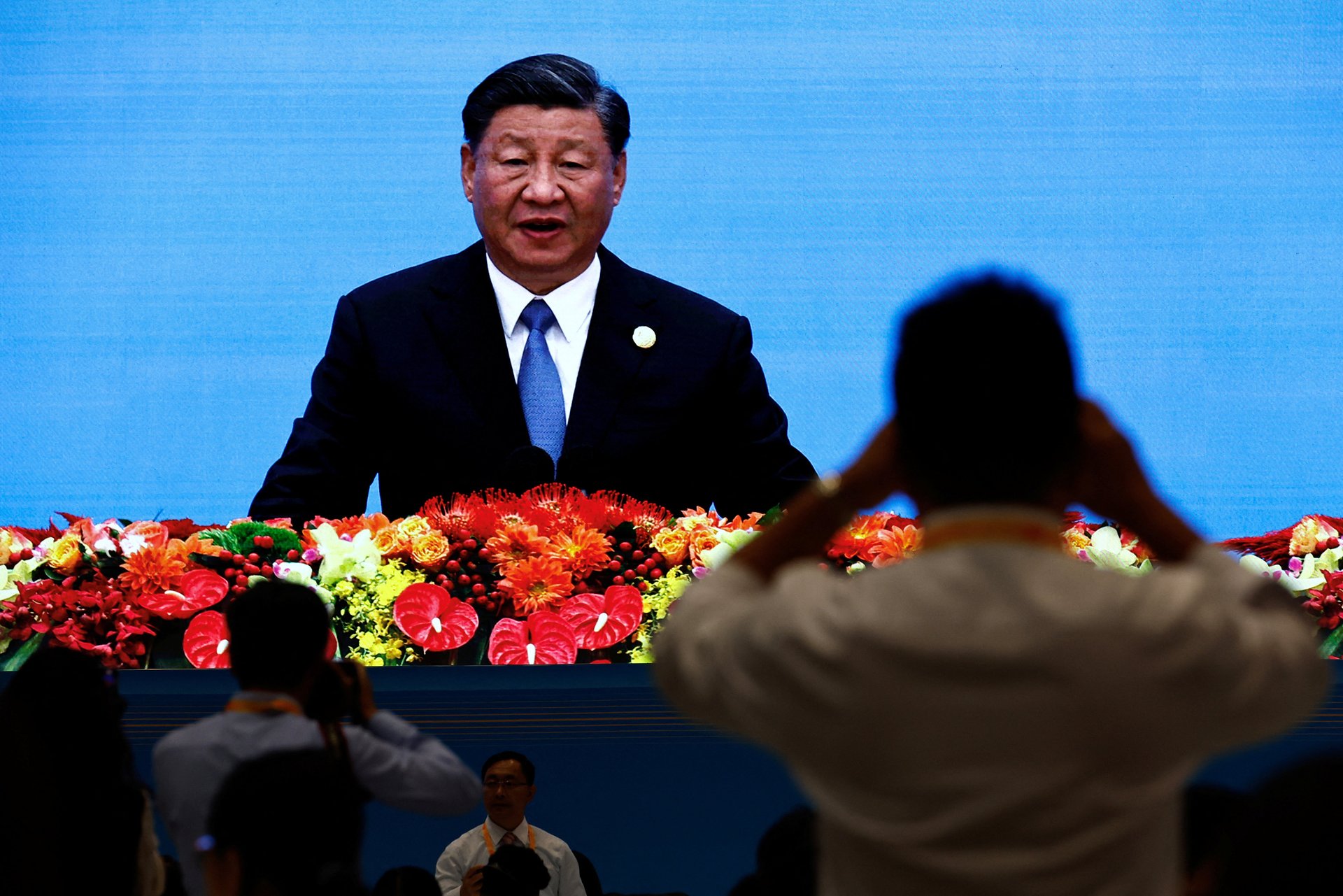China rolls out a (largely symbolic) red carpet for foreign manufacturers
Beijing announced the removal of restrictions on foreign investment in manufacturing, though the move is more form than substance

China is removing restrictions on foreign investment in the domestic manufacturing sector, according to state media.
Suggested Reading
The move appears to be aimed at convincing more overseas businesses to expand their footprint in the country, at a time when rising geopolitical tensions and Beijing’s aggressive treatment of both homegrown and foreign private sector players has major global firms reconsidering their China exposure.
Related Content
During Xi Jinping’s keynote speech marking the commencement of the Belt and Road Forum in Beijing today (Oct. 18), the Chinese leader announced that remaining restrictions on manufacturing-related activities by foreign companies in China will be removed, according to the tech and business outlet Jiemian (link in Chinese), citing the national state-owned broadcaster CCTV. The state-owned Securities Daily also republished Jiemian’s article (link in Chinese).
A researcher affiliated with the Chinese ministry of commerce told Jiemian that “the complete lifting of restrictions on foreign investment in the manufacturing sector has sent a signal to the outside world that China’s door to the outside world will open wider and wider.”
Still, the move is partially symbolic at best given that few restrictions actually remain on foreign investment in China’s manufacturing sector.
Beijing authorities regularly publish a “negative list” to delineate areas in which foreign companies are prohibited or restricted from investing in. The latest such list, published in 2021 (pdf, link in Chinese), only featured two restrictions for the manufacturing sector: operations that print publications must be majority owned by a Chinese unit; and foreign firms are barred from investing in the processing and production of certain Chinese medicines. Xi’s announcement only lifts these two remaining curbs.
The Chinese government has in recent years sought to open up its manufacturing sector to more foreign investment. In 2018, for example, authorities lifted all foreign ownership caps (link in Chinese) on ventures producing electric vehicles and hybrids; this measure was further extended to all passenger car ventures in 2022.
Whether Beijing’s latest move will be enough to convince foreign businesses to expand their China footprint and pour investment into the country remains to be seen. Already, manufacturers from big behemoths like iPhone maker Apple to smaller players like canoe producer Grey Duck Outdoor are diversifying their supply chains out of China. Beijing’s hope is to stem that friendshoring tide—and making a pitch that it, too, can be a friendly manufacturing shore.